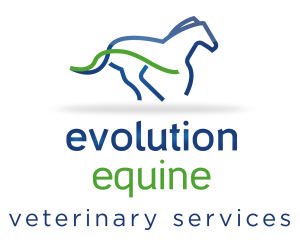Tetanus
Tetanus is a serious bacterial disease that affects almost all animals. Horses are particularly susceptible due to their environment and tendency to suffer injuries. Unfortunately animals infected with tetanus, usually die or require euthanasia on humane grounds.
Cause
Tetanus is caused by toxins produced by the bacteria Clostridium tetani. This bacterium, commonly found in the soil and faeces, enters the body via wounds. Puncture wounds are particularly dangerous as the anaerobic (low oxygen) environment they provide are perfect for the bacteria which multiply rapidly and produce a potent neurotoxin. Infection may also be acquired via the gastrointestinal tract through gastric or intestinal ulcers.
Symptoms
- Muscle stiffness and spasm
- Protrusion of the third eyelid
- Sweating, weakness and collapse
- Convulsion
- Death
- Bright light and stimulation may exacerbate clinical signs
Treatment
Unfortunately the vast majority of tetanus cases result in death of the affected animal. Potentially with early diagnosis, treatment is possible. This focuses on eradicating the bacteria using large volumes of injectable antibiotics and tetanus antitoxin, thus limiting toxin production. Supportive nursing care is required to help keep the patient comfortable and maintain fluid levels. However it is important to remember that the prognosis is always poor, and unfortunately euthanasia is often performed on humane grounds.
Prevention
Tetanus is an easily preventable disease. Ideally all horses, ponies and donkeys should be vaccinated against tetanus. Effective immunity against tetanus requires a primary course of two vaccinations given 4-6 weeks apart, followed by a booster at 12 months. From thereafter boosters can be given at 2 yearly intervals.
If your horse is unvaccinated and obtains a wound then it is essential that a tetanus anti-toxin injection is given as soon as possible. This will prevent a tetanus infection, but does however only provide temporary cover for 2-3 weeks as the protective effect of the antitoxin wanes with time.
Vaccinated mares will provide antibodies to their foals via the mother’s colostrum so long as the mare is given a tetanus booster 4-6 weeks prior to foaling. This provides new-born foals with some added protection for the first 6-12 weeks of life. In addition to this the new-born foal should also receive a dose of tetanus antitoxin to provide temporary cover for 2-3 weeks after birth. During this time the foal is particularly susceptible to infection.
A primary vaccination course is usually started in a horse over the age of 5 months, but can be given earlier if the mare was unvaccinated.
